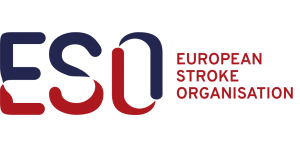Report from the ESO Trials Alliance (ESOTA) Webinar – Moving forward in Stroke Trials
By Aristeidis Katsanos, Clinical Fellow, McMaster University & Investigator, Population Health Research Institute, Hamilton, ON, Canada @ArKatsanos
 This webinar was organized by the ESO Trials Network Committee on June 16, 2021 as a virtual event. The event started at 14:00 CEST with the Chair of the ESO Trials Network Committee Dr. Robin Lemmens introducing the ESO Trials Alliance (ESOTA) to the audience. Dr. Lemmens described ESOTA as a collaboration between clinical stroke networks to improve stroke trials performance. According to Dr. Lemmens nine European countries have joined so far the ESOTA collaborative effort and continuous efforts are made to include other countries and further expand the visibility of the network. The webinar continued with Dr. Silke Walter and Dr. Philippe Lyrer taking over from Dr. Lemmens, introducing the speakers and moderating the Q&A session at the end of the presentations.
This webinar was organized by the ESO Trials Network Committee on June 16, 2021 as a virtual event. The event started at 14:00 CEST with the Chair of the ESO Trials Network Committee Dr. Robin Lemmens introducing the ESO Trials Alliance (ESOTA) to the audience. Dr. Lemmens described ESOTA as a collaboration between clinical stroke networks to improve stroke trials performance. According to Dr. Lemmens nine European countries have joined so far the ESOTA collaborative effort and continuous efforts are made to include other countries and further expand the visibility of the network. The webinar continued with Dr. Silke Walter and Dr. Philippe Lyrer taking over from Dr. Lemmens, introducing the speakers and moderating the Q&A session at the end of the presentations.
Dr. Alistair Nichol in the first presentation of the webinar “Platform trials in Critical Care Medicine – what, why, how and implications for stroke networks” provided some historical aspects on the impact of pandemic crises on research, presenting the previous experience with the H1N1 pandemic as an example. Dr. Nichol reported that although clinical research response during a pandemic is lagging, working together during the COVID-19 pandemic and pre-planning were major keys to successfully overcoming delays. Dr. Nichol stressed the need for platform design as a mean to launch clinical trials quickly during a pandemic, while being able to test multiple hypotheses simultaneously instead of sequentially. Dr. Nichol presented the paradigm of the critical care community being prepared for future pandemics, setting up trials and executing them successfully, and providing confidence to the community members that the results are meaningful and robust.
Dr. Gotz Thomalla in his presentation “Consent in acute stroke trials” summarized the experience of a stroke physician with more than 20 years experience in acute stroke trial research, including consenting for study participation. Dr. Thomalla highlighted informed consent as the fundamental ethical principle in every research involving humans and presented some key points from the World Medical Association Declaration of Helsinki. Dr. Thomalla discussed the rules for inclusion of incapable patients according to the Declaration of Helsinki and how these rules can apply to waive informed consent in acute stroke research. Dr. Thomalla presented the algorithm for obtaining informed consent within the WAKE-UP trial and the differences in patient characteristics according to the way they were consented for participation, highlighting that consenting processes can impact the trial population, affect the study results and limit the generalizability of the findings.
Mrs. Kay Duggan Walls from the Health Research Board, Ireland provided a comprehensive overview of the Horizon Europe 2021-2027 program in the presentation “Applying for Horizon Europe EU funding and role of non-EU countries as partners”. Mrs. Walls provided some very useful tips for investigators aiming to apply for an upcoming Horizon Europe program: start planning early, read the program carefully, take advice from colleagues that have previously funded research and register as soon as the call is open. Mrs. Walls also suggested that becoming an evaluator in the program can be useful to get familiar with the system and proposals format, while advised that justification is always needed when non-European countries are included in a proposal.
In the last presentation “Patient and Public Involvement in Research” by Dr. Christine Roffe the topic of patient and carer involvement in consent procedures was discussed. Dr. Roffe focused her presentation on how to successfully engage patients and public in stroke research, discussing on both benefits and potential risks. Dr. Roffe reported that although patients are experts in the condition they suffer and thus can provide a unique insight into a trial, investigators should avoid patient overburden and be mindful that patients and caregivers can have their personal agendas. Dr. Roffe concluded that patient and public involvement is feasible within the research environment and benefits both the researcher and the patient.
The session closed with some Q&A discussion on: 1. gender equity in stroke trials and the need for continuous efforts in all levels from the planning to the execution of a trial in order to ensure equal female and male representation, 2. deferred consent process depending on the research question and the patient population capability, 3. the need for better communication between regulatory boards and ethics committees in Europe, 4. The first steps to set up a platform trial being close collaboration of stroke experts, early discussion on the study rationale and searching for funding.

